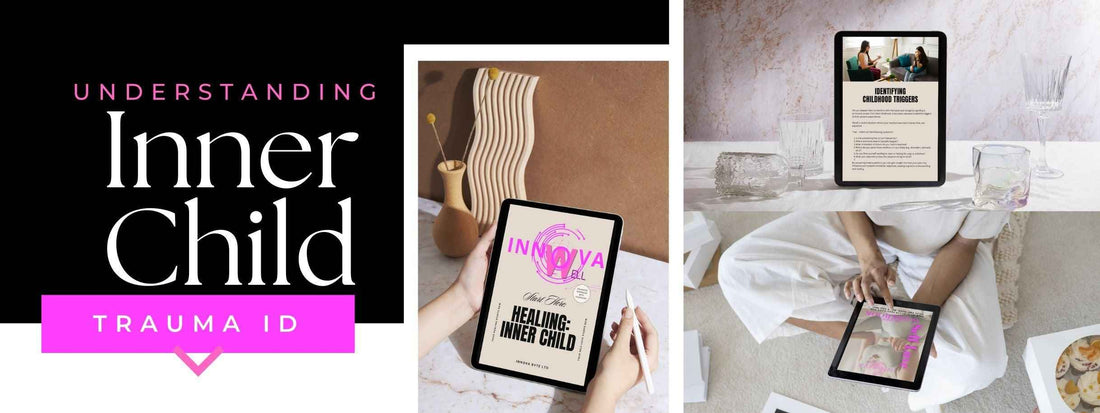
The Importance of Childhood Trauma Identification for Mental Well-Being
Childhood is often considered a foundational period in human development, shaping not only our personalities but also our mental health. Yet, for many individuals, this formative time is marked by experiences that can leave deep emotional scars—traumas that, if left unaddressed, can ripple through a lifetime. Understanding and identifying childhood trauma is essential for healing and improving mental well-being, allowing individuals to reclaim their lives and break free from cycles of pain.
Understanding Childhood Trauma
Childhood trauma encompasses a wide range of experiences, including physical, emotional, or sexual abuse; neglect; loss of a parent; domestic violence; and living in an unstable environment. These traumatic experiences can profoundly affect a child’s psychological development and their ability to form healthy relationships in adulthood.
The Link Between Childhood Trauma and Mental Health
Research consistently shows a strong correlation between childhood trauma and a variety of mental health issues. Individuals who have experienced trauma during their formative years are at a heightened risk for conditions such as:
- Depression: Many adults with unresolved childhood trauma report chronic feelings of sadness or emptiness.
- Anxiety Disorders: Trauma can trigger persistent anxiety, phobias, and panic attacks, as the individual may become hyper-vigilant to perceived threats.
- Post-Traumatic Stress Disorder (PTSD): Childhood experiences can lead to PTSD, which includes symptoms such as flashbacks, nightmares, and severe anxiety.
- Substance Abuse: Individuals may turn to drugs or alcohol as a coping mechanism to numb the pain associated with their trauma.
- Personality Disorders: Unresolved trauma can contribute to the development of various personality disorders, impacting interpersonal relationships and emotional regulation.
The mental health implications of childhood trauma are not just immediate; they can have lasting effects that extend into adulthood, influencing behavior, emotional responses, and overall life satisfaction.
The Importance of Identifying Childhood Trauma
Recognizing Patterns
One of the first steps in healing from childhood trauma is recognizing its existence. Many individuals may not consciously identify their experiences as traumatic, especially if they have normalized or suppressed those feelings. Identifying childhood trauma is crucial for several reasons:
-
Awareness and Acknowledgment: The process of identifying trauma helps individuals acknowledge their past, allowing them to understand how it has shaped their current mental health and behaviors. This awareness is the first step toward healing.
-
Breaking the Cycle: Many people unknowingly repeat unhealthy patterns in relationships and behaviors that stem from childhood trauma. By recognizing these patterns, individuals can begin to make conscious choices that lead to healthier outcomes.
-
Tailored Healing Strategies: Understanding the specific traumas one has experienced enables the development of targeted healing strategies. Different traumas may require different therapeutic approaches, so identifying the root causes can facilitate a more effective healing process.
Addressing Suppressed Emotions
Suppressed emotions are a common consequence of childhood trauma. Many individuals learn to cope by burying their feelings, leading to a host of psychological issues. Addressing these suppressed emotions is essential for several reasons:
- Emotional Release: Allowing oneself to feel and express buried emotions can lead to a significant emotional release, paving the way for healing.
- Improved Self-Understanding: Exploring suppressed feelings can help individuals gain insight into their emotional responses and triggers, leading to better self-regulation and healthier coping mechanisms.
- Enhanced Relationships: As individuals learn to process and express their emotions, they often find that their relationships improve. Open communication fosters deeper connections and enhances emotional intimacy.
Why It’s Important to Resolve Childhood Trauma
Resolving childhood trauma is not just about alleviating psychological distress; it’s about reclaiming one’s life. Here are some compelling reasons to prioritize this healing journey:
-
Improved Mental Health: Addressing and resolving trauma can significantly reduce symptoms of anxiety, depression, and PTSD, leading to an overall improvement in mental well-being.
-
Healthier Relationships: Healing from childhood trauma allows individuals to engage in healthier, more fulfilling relationships, breaking free from the toxic cycles that trauma can perpetuate.
-
Increased Resilience: Working through trauma builds emotional resilience, equipping individuals with the skills to cope with future challenges and stressors.
-
Empowerment: The journey of healing empowers individuals to take control of their narratives, fostering a sense of agency and self-worth that may have been diminished during childhood.
-
Generational Healing: By addressing and healing from childhood trauma, individuals can break harmful cycles and create healthier environments for future generations, fostering a legacy of emotional well-being.
Conclusion
Identifying and addressing childhood trauma is a vital step in the journey toward mental well-being. By recognizing the impact of past experiences, individuals can begin to heal suppressed emotions and break free from detrimental patterns. The path to healing may require time and effort, but the rewards—improved mental health, healthier relationships, and a renewed sense of self—are well worth it. Investing in this healing process is not just an act of self-care; it’s a transformative journey toward a happier, more fulfilled life.
